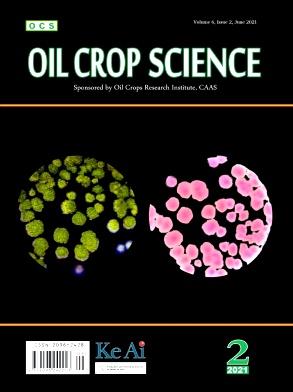核桃油对啮齿动物阿尔茨海默型痴呆认知功能障碍的改善作用
Q3 Agricultural and Biological Sciences
引用次数: 0
摘要
核桃油(WO)以丰富的多不饱和脂肪酸和一系列生物活性物质(如生育酚、植物甾醇、角鲨烯、褪黑激素和多酚)而闻名,具有众多健康优势。本研究的主要目的是确定 WO 对东莨菪碱(SCOP)导致的学习和记忆障碍小鼠认知缺陷的影响。研究采用了莫里斯水迷宫和降阶回避测试来评估小鼠的记忆和学习能力。在莫里斯水迷宫中,WO明显抵消了SCOP对学习和记忆的不利影响,这表现在逃逸潜伏期和游泳距离的缩短上。同样,在降阶回避测试中,与 SCOP 组相比,施用 WO 可显著减少训练试验中的错误次数,增加测试试验中的潜伏期。此外,WO 还能通过上调胆碱乙酰转移酶活性和降低乙酰胆碱酯酶活性来激活大脑的胆碱能系统。这些结果表明,WO 具有防止小鼠记忆力衰退的潜力,为预防记忆相关疾病提供了一种很有前景的策略。本文章由计算机程序翻译,如有差异,请以英文原文为准。
Ameliorative effect of walnut oil against cognitive impairment in alzheimers type dementia in rodent
Walnut oil (WO), known for abundant polyunsaturated fatty acids and an array of bioactive substances such as tocopherols, phytosterols, squalene, melatonin, and polyphenols, which is endowed with numerous health advantages. The primary objective of this research was to ascertain the impact of WO on cognitive deficits in learning and memory impairment mice caused by scopolamine (SCOP). The Morris water maze and the step-down avoidance test were utilized to assess the memory and learning capabilities. WO notably counteracted the detrimental effects of SCOP on learning and memory in the Morris water maze, as indicated by a reduction in escape latency and swimming distance. Likewise, WO administration led to a notably reduced number of errors in training trial and an increased latency in testing trial when compared to the SCOP group in the step-down avoidance test,. Moreover, WO activated the cholinergic system of the brain by upregulating choline acetyltransferase activity and reducing acetylcholinesterase activity. These results suggest that WO has the potential to protect against memory decline in mice, offering a promising strategy for the prevention of memory-related disorders.
求助全文
通过发布文献求助,成功后即可免费获取论文全文。
去求助
来源期刊

Oil Crop Science
Food Science, Plant Science, Agronomy and Crop Science
CiteScore
3.40
自引率
0.00%
发文量
20
审稿时长
74 days
 求助内容:
求助内容: 应助结果提醒方式:
应助结果提醒方式:


